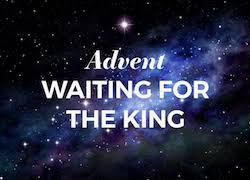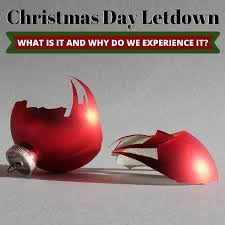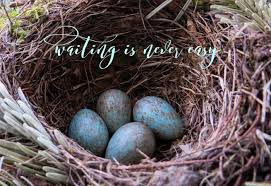
It’s that time again
The Christmas holidays are winding down. Special parties and family celebrations will culminate with the ringing in of a new year. There is only one more thing to do. It’s time to make our New Year’s resolution.
Who created those things anyway? Whatever their origin, regardless of our success or our failure in their creation, resolutions are intended to set a better pattern for living our lives in the upcoming year. This may include new purpose that relate to our health, our finances, and even our relationships.
It is a time to reflect on what worked or what could have worked better. New Year’s resolutions give us an opportunity to put our best foot forward in the coming year. But this year, I’m taking a different approach.
This year, instead of being dependent on my resolution, I’m going to strengthen my connection with the One who can help me make more than a superficial change. I’m going to choose a better way (Phil. 3:8-10). I choose transformation that is only possible through Jesus Christ.
Why attempt to identify a “better way” when Jesus has provided us “the best way” (John 14:6). Through Christ we are new creatures indwelt by His Holy Spirit. The only thing we need to do is to embrace our identity. In Christ, we can do better everyday in the new year.
In search of a better way
The Book of Colossians records the letter from the Apostle Paul to the Church in Colosse. He was concerned with the reports he had received from a local evangelist, Epaphras, concerning the possible “encroaching heresy” threatening this predominately Gentile church. (Col. 1:21, 27; 2:13)
In their search to find the best way to live in their world, they were now considering a new religious system that combined elements from Greek speculation (Col. 2:4, 8-10), Jewish legalism (Col. 2:11-17), and Oriental mysticism (Col. 2:18-23).[1]
This threat to Christ’s church is still present even now, in 2021. It is called syncretism.
Syncretism is the combining of different beliefs and various schools of thought. Syncretism involves the merging or assimilation of several mythologies or religions, thus asserting an underlying unity and allowing for an inclusive approach to other faiths.[2]
A better way or led astray?
As Christians, we must be careful to avoid societal pressures to combine Christianity with “other things”. To do so can subtly lead us away from the basic tenets of our faith. Seeking to be “socially and politically correct”, we might be led to compromise or minimize God’s truth.
The nation of Israel fell prey to this practice (1 and 2 Kings). This practice resulted in idolatry, disobedience to God, and weakening of their faith. Take a look around. Do we see a similar thing happening in our world today?
Are you ready to change?
In Colossians 3:5-9, Paul admonishes these young believers to “put off” their old man. The old man represented the person they use to be before coming to Christ. That old man walked according to the influences of the world and the weakness of their human flesh (1 John 2:15-16).
The 21st century has mastered the art of influence. Media (social and otherwise) tells us how we are to think and act. We invite them into our homes and offices. They are the uninvited passenger in our cars as we drive here and there. Marketing bombards us with messages on who we should be. They create great dissatisfaction with what we have, how we look, and what we know. (That’s how they keep us spending money). Social messaging keeps us “in our current state” by telling us what we can or can’t do. They remind us of our weaknesses and our vulnerabilities. So much so that we are fearful to move without their validation.
Old “dead man” walking
“Whoever sows to please their flesh, from the flesh will reap destruction.” (Gal. 6:8a, NIV)
We must guard against the defiling touch of the world, of sin, and of the old self-life. We stand between two worlds, each solicits us: let us yield to the influences that pull us upward, and not to those that anchor us to this sinful and vain world. Our eternal blessedness has begun, let us walk in it. In Christ we profess to have put off the old man, i.e., the habits of our former life; now let us actually do so, in the power of the Holy Spirit.[3]
Even as Christians, we still tend to depend on our self-discipline, self-will, and self-motivation to live a sober, righteous, and godly life (Titus 2:11-14). Just like our New Year’s resolution. We try and try. But we usually fall off the wagon by Valentine’s Day. What we need is not a new syncretic way nor a more disciplined approach. We need transformation. We need to “put on the new man”.
[1] The Times of Colossians, The New Open Bible Study Edition.
[2] Wikipedia
[3] F.B. Meyers, Through the Bible Commentary, Colossians 3










